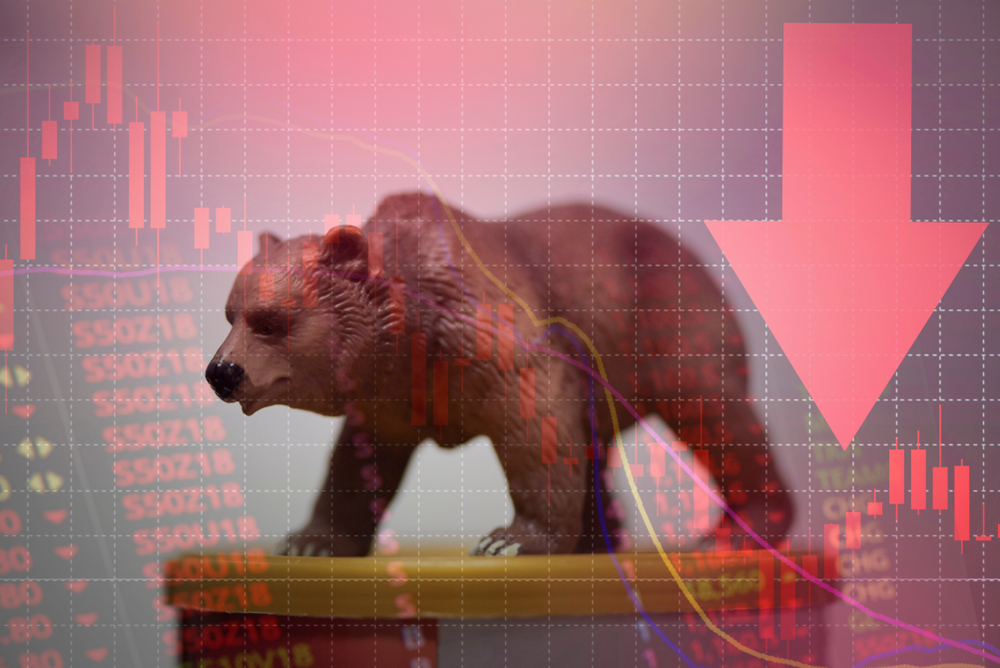Soon after the Covid-19 pandemic reared its ugly head in 2020, the S&P 500 entered into what’s called a “bear market.”
Last week, the S&P 500 dropped into a bear market for the second time in the last two years. That can spell trouble for many investors, especially Baby Boomers. In this article, we’ll discuss the impacts a bear market has on stock investments.
First Thing’s First: What Is A Bear Market?
Simply put, whenever stocks fall by at least 20% from recent highs, we find ourselves in what’s called a “bear market.” These events are relatively uncommon. However, when they do happen, it can often be an indicator that we’re on our way to a recession. The S&P 500 was at a peak on January 3rd, but it entered a bear market last week. Several factors have potentially led to this drop, including concerns about soaring inflation, the war in Ukraine, Covid-19, and the government’s efforts to keep the economy in check.
How Long Will A Bear Market Last?
The last bear market, which occurred just as Covid-19 started sweeping the planet, was pretty short-lived (in fact, the shortest ever). During that time period, stocks fell by a third in just over a month. However, thanks to federal efforts like the pandemic stimulus package, the market bounced back in just six months.
This current bear market has the potential to last longer. What’s more, it has the potential to affect retirees who heavily rely on stock-heavy retirement plans (e.g., 401(K)s). A good portion of those retirees can be summed up with two words.
Baby Boomers.
What Could This Bear Market Mean For Baby Boomers?
Baby boomers have plenty of challenges when it comes to retirement, but how does a bear market affect them? For boomers, the biggest challenge is time. For many younger investors, the best course of action during periods of volatility like this is to do nothing, as the markets tend to rise again. But for older workers, “waiting” is easier said than done.
In many cases, it’s because of boomers’ reliance on their 401(K)s. The recession of 2008 taught some painful lessons on this front. During that volatile year, the S&P 500 dropped by 37 percent. In that same year, the average 401(K) dropped by almost a fourth of its value.
There’s always a chance this most recent bear market could produce similar downturns among 401(k)s. And thinking you’ll be able to “wait” until your 401(K) hits your target value again might not be feasible.
So, what about the baby boomers who lean more heavily on stocks as opposed to bonds and other investments?
The best answer I can offer is that they may weather the storm a bit better, but it’s not a guarantee. The biggest flaw with this approach is that investors are counting on the market going back up. That’s simply not a guarantee. This cold, hard truth is especially painful if you’re looking to rely on retirement income in the near term.
What Can I Do To Ride Out A Bear Market?
The kind of volatility we’re seeing now is exactly the reason I created the Triad asset allocation plan. The Triad can provide opportunities with reduced risks of losing money when compared to other investment strategies. Specifically, the plan incorporates assets that aren’t as affected by market performance.
Of course, it’s important to understand that no investment is 100% safe. Investing involves risk, including the potential loss of your principal investment. No investment strategy can guarantee a profit or protect against a loss in periods of declining values.
But if the thought of a bear market and your retirement is keeping you up at night, I highly encourage you to contact us for a free consultation. We can discuss those risks, as well as the potential benefits of a Triad plan.








